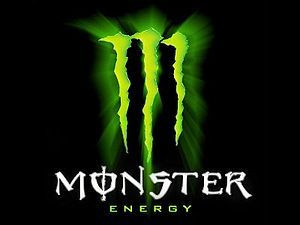14-Year Old Allegedly Dies From Energy Drinks; Monster Beverage Responds To Lawsuit With Medical Evidence

In December 2011, a 14-year-old girl allegedly died from drinking two Monster energy drinks within the span of 24 hours.
Paramedics rushed an unconscious Anais Fournier to nearby Johns Hopkins Hospital. Attempts to reduce swelling in Anais’s brain were unsuccessful and she was taken off of life support shortly thereafter. The autopsy report indicated young Fournier died from cardiac arrhythmia, irregular heartbeat, caused by caffeine toxicity, or a caffeine overdose. The cardiac arrhythmia prevented the heart from pumping blood normally. Anais also suffered from an inherited genetic disorder, which weakens blood vessels.
Eleven months after their daughter's death, Wendy Crossland and Richard Fournier of Hagerstown, Md., filed suit in California, where Monster is based.
Monster denied the allegations, promising to fight the lawsuit. On Monday, Monster provided medical evidence as its response. The team Monster hired to examine the medical reports and the autopsy of Anais includes a “cardiac pathologist, a cardiac electrophysiologist, an emergency room physician, a chief forensic pathologist/coroner, as well as other medical experts including a toxicologist and a pharmacologist,” the company said in statement.
The team’s findings dispute the autopsy report from Maryland’s Medical Examiner. According to physicians, blood tests for caffeine were not performed and the Medical Examiner included it in the report based on the testimony of Fournier's mother that her daughter had consumed an energy drink that contained caffeine.
“After an examination of Ms. Fournier's medical records, pathology report and autopsy report, the physicians stated conclusively that there is no medical, scientific or factual evidence to support the Maryland Medical Examiner's Report of 'caffeine toxicity' or that Ms. Fournier's consumption of two Monster Energy Drinks 24 hours apart contributed to, let alone was the cause of her untimely death,” said Daniel Callahan, one of Monster’s lawyers.
Further examination of Fournier’s medical history as well as the autopsy reports also revealed no evidence of caffeine toxicity. According to Monster, there is no medical or scientific evidence that a caffeine overdose led to the death of Anais.
Monster also pointed to a Harvard Medical School study published in the Archives of Internal Medicine that examined the relationship between caffeine and cardiac arrhythmias. The researchers gave patients with cardiac disease 200 mg of caffeine, equivalent to 1.25 Monster energy drinks (based on a 16 oz. can), and found that caffeine does not increase the risk or trigger arrhythmias in patients with severe cardiac disease.
A review published in The Journal of Clinical Pharmacology determined the median lethal dose of caffeine, ingested orally, is approximately 100 mg to 200 mg per kg of mass. Another study cited by Monster was an Institute of Medicine study published for the United States Military which stated a lethal dose of caffeine was approximately 10,000 mg or 14,000 mg. According to Monster, “An individual would have to consume 1,000 fluid ounces, or 7.8 gallons or over 60 16-oz cans of Monster Energy Drinks in a single sitting to ingest 10,000 mgs of caffeine.”
Fournier’s parents claim that their daughter consumed 48 oz. of Monster Energy drinks within a 24 hour period, a can on December 16 and another on Dec. 17, three hours later Anais suffered a cardiac arrest. According to Monster, any caffeine consumer on December 16 would have been ingested by the body and would not have played a role in the cardiac arrest.
Anais suffered from different heart conditions, including being diagnosed with a heart murmur at four-years-old, which increased the risk of cardiac arrest as well as a family history of heart conditions. At the time of her death, Anais’ heart was 60 percent larger than a normal heart.
The team of physicians, along with the Maryland Medical Examiner, concludes that Anais died from natural causes due to these heart conditions saying, “The association between Ehlers-Danlos Syndrome and mitral valve prolapse has been well established. Mitral valve prolapse is also associated with intramural coronary artery thickening and myocardial fibrosis with increased risk for cardiac arrhythmia and sudden death.”
Callahan concludes, “Monster is very sorry for the family's loss, but the facts do not support placing the blame of Ms. Fournier's untimely passing on Monster beverages.”
© Copyright IBTimes 2025. All rights reserved.






















